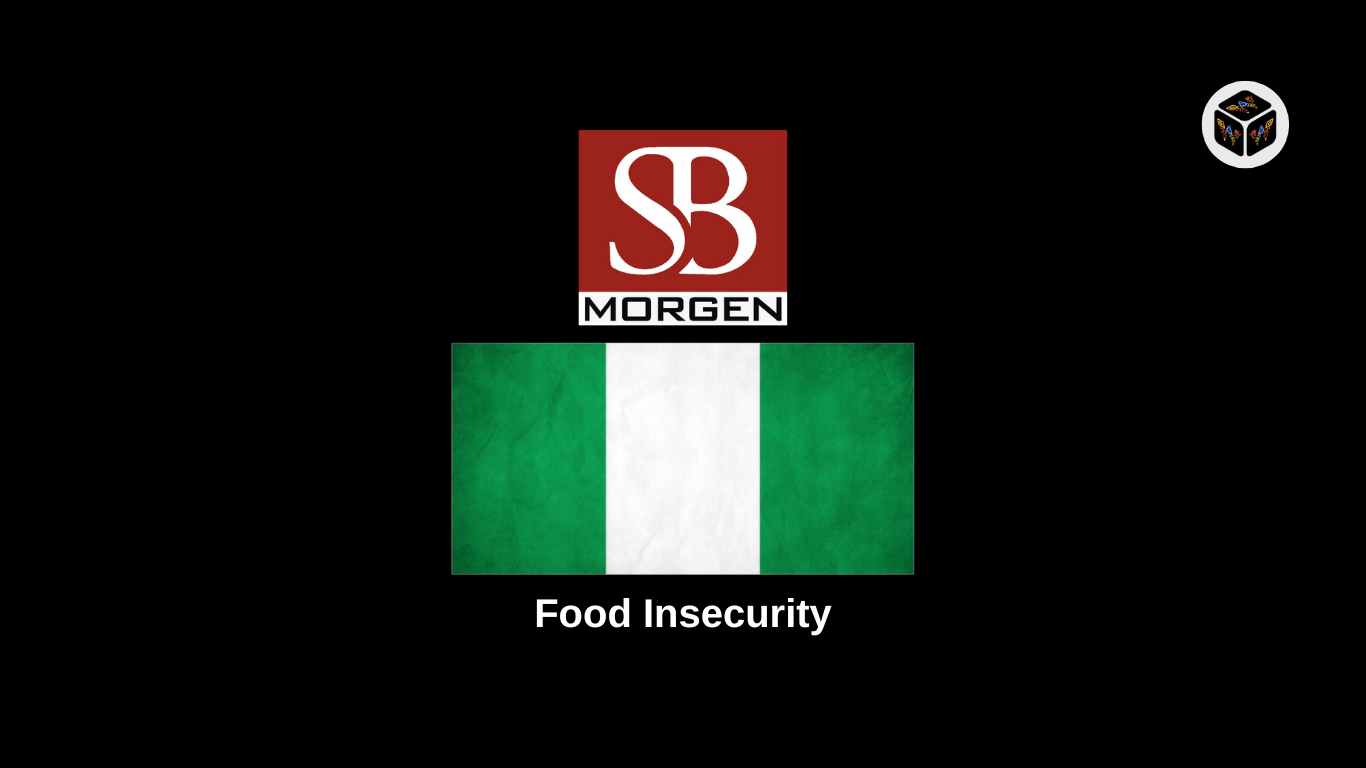
Terrorists Contribute to Food Insecurity in Nigeria – SBM Report Shows

A report by SBM Intelligence, an Africa-focused intelligence gathering and consulting firm, has revealed that terrorists impose levies on agricultural communities in the Middle Belt and Northern Nigeria which has contributed substantially to food insecurity in the country.
According to SBM, the levies are imposed mainly by armed non-state actors, including Boko Haram, ISWAP, Fulani militia and other undesignated terrorist groups in the country.
These illegally imposed levies on farmers and transporters across six states, including Sokoto, Niger, Zamfara, Kastina, Kano, are part of the leading causes of food hikes in the country.
According to SBM, Sabon Birni in Sokoto State payid ₦69.3 million. Kaduna and Niger, on their proximity borders in Chikun, Birnin Gwari, and Shiroro, paid the sum of ₦12 million.
In Kastina and Zamfara, Kaura Namoda, Zurmi, Jibia, Bastari, Dustin Ma, Safana, Anka, Gusau, Tsafe, Maru, and Bukkuyum, collectively paid ₦139.45 million.
The six states reportedly paid Ν363.74 million as levies imposed by terrorists.
Ripple Effect of the Imposed Levies
The financial burdens of these levies has ripple effects on farmers, many of whom often operate on tight budgets. It has also encouraged overreliance on food imports over locally produced farm products.
In addition, the threat of violence and intimidation by extremist groups have caused farmers to abandon their farmlands which has resulted in a decreased number of farmers working to promote local food production and food security.
This has discouraged agricultural investments and slowed down the country’s economic output.
Essentially, this has left consumers with food scarcity and increased food prices.
Meanwhile, state governors including these states remain responsible for protecting lives and propertiesof citizens with no exception to farmers’ protection.
According to SBM, the levies are imposed mainly by armed non-state actors, including Boko Haram, ISWAP, Fulani militia and other undesignated terrorist groups in the country.
These illegally imposed levies on farmers and transporters across six states, including Sokoto, Niger, Zamfara, Kastina, Kano, are part of the leading causes of food hikes in the country.
According to SBM, Sabon Birni in Sokoto State paid ₦69.3 million. Chikun, Birnin Gwari, and Shiroro in Kaduna and Niger states collectively paid the sum of ₦12 million.
In Kastina and Zamfara, Kaura Namoda, Zurmi, Jibia, Bastari, Dustin Ma, Safana, Anka, Gusau, Tsafe, Maru, and Bukkuyum, collectively paid ₦139.45 million.
In total, the six states reportedly paid Ν363.74 million as levies imposed by terrorists.
Ripple Effect of the Imposed Levies
The financial burdens of these levies has ripple effects on farmers, many of whom often operate on tight budgets. It has also encouraged overreliance on food imports over locally produced farm products.
In addition, the threat of violence and intimidation by extremist groups has caused farmers to abandon their farmlands which has resulted in a decreased number of farmers working to promote local food production and food security.
This has discouraged agricultural investments and slowed down the country’s economic output. Ultimately, this has left consumers with food scarcity and increased food prices.
About The Author
Mayowa Durosinmi
author
M. Durosinmi is a West Africa Weekly investigative reporter covering Politics, Human Rights, Health, and Security in West Africa and the Sahel Region
Mayowa Durosinmi
M. Durosinmi is a West Africa Weekly investigative reporter covering Politics, Human Rights, Health, and Security in West Africa and the Sahel Region
Related Articles
Tinubu Follows Gumi’s Lead as Nigeria Signs Turkey Defence Deal, Fueling Speculation Over Who Really Controls the Country’s Security Policy
Nigeria’s diplomatic and security strategy is once again under scrutiny after a...
ByWest Africa WeeklyJanuary 28, 2026Burkina Faso President Ibrahim Traoré Reviews 2025 Achievements, Sets Ambitious Agenda for 2026
Burkina Faso’s President, Ibrahim Traoré, has described 2025 as a year of...
ByWest Africa WeeklyJanuary 28, 2026Mali Says Reports of New Three-State Sahel Currency Are False but Talks Continue on Economic Integration
Mali’s government has rejected claims that it and its neighbours, Burkina Faso...
ByWest Africa WeeklyJanuary 28, 2026CBN Upgrades Opay, Moniepoint, Kuda and Others to National Licences
The Central Bank of Nigeria has upgraded the operating licences of several...
ByWest Africa WeeklyJanuary 28, 2026











